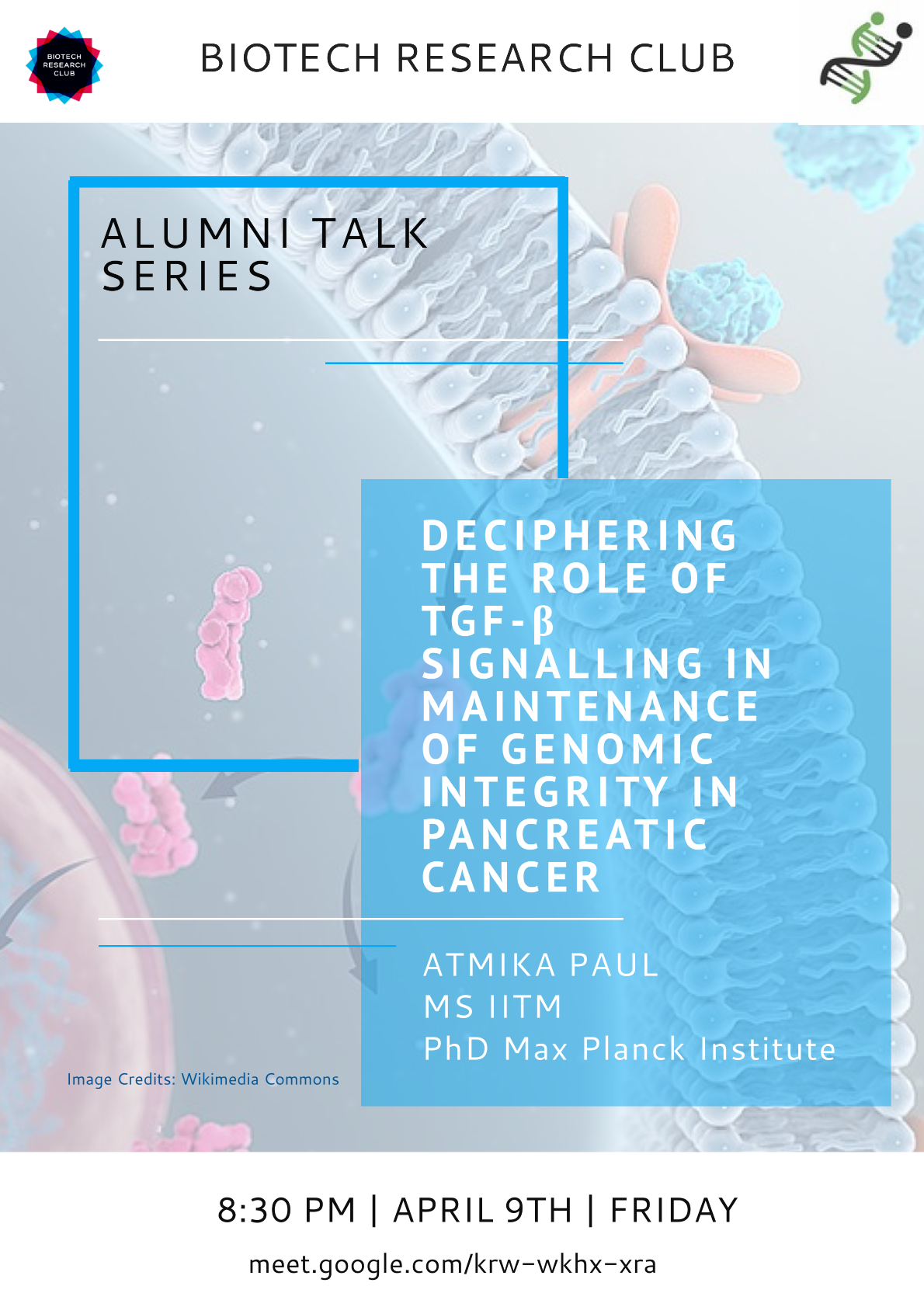Deciphering the role of TGF-ß signalling in maintenance of genomic integrity in pancreatic cancer

Abstract
Clinical management of Pancreatic Cancer (PC) continues to be a formidable challenge despite recent breakthroughs in diagnostics & therapeutics. Pronounced Chromosomal Instability (CIN) is a hallmark of PC and is associated with therapeutic resistance, increased metastasis, late-stage diagnosis and poor 5-year survival rate (~5-10%), making it one of the most lethal cancers. Alarmingly, it is predicted to become the second-leading cause of cancer-related deaths by 2030. Although pathologically heterogeneous, the PC genome shows recurrent patterns of genetic alterations. Thus, combining molecular-driven therapeutic approaches with current histopathological criteria can significantly improve patient stratification. One of the most frequent genetic alterations in Pancreatic Ductal Adenocarcinomas (PDACs) is the inactivation of SMAD4 (~55%), a central mediator of canonical TGF-β signaling pathway. Our recent work suggests that altered TGF-β signaling directly affects CIN in PDACs. Mechanistically, we found evidence that these chromosomal aberrations are driven by abnormal microtubule dynamics in mitotic cells. Our project aims at dissecting the molecular consequences of aberrant TGF-β signaling in pathogenesis of PC. This research will improve understanding of pathways governing genome maintenance and explore exciting avenues for stratifying SMAD4-deficient PC patients. We hope to devise a novel strategy for targeting pancreatic cancer by combining existing microtubule-targeting drugs and anti-TGFβ therapies
Biography of the speaker
She did her Master’s in research in cancer biology in Dr. Mahalingam’s lab, and later joined as a PhD research scholar in NUS Singapore. Then she finished her Master’s/PhD coursework with the International Max Planck Molecular Biology program and currently she is pursuing PhD in Cellular Oncology. She is also the student representative of the Pancreatic cancer Genome dynamics research unit. She works on understanding the underlying molecular mechanisms that govern cancer progression and define targeted therapeutic strategies for better clinical management of cancer.